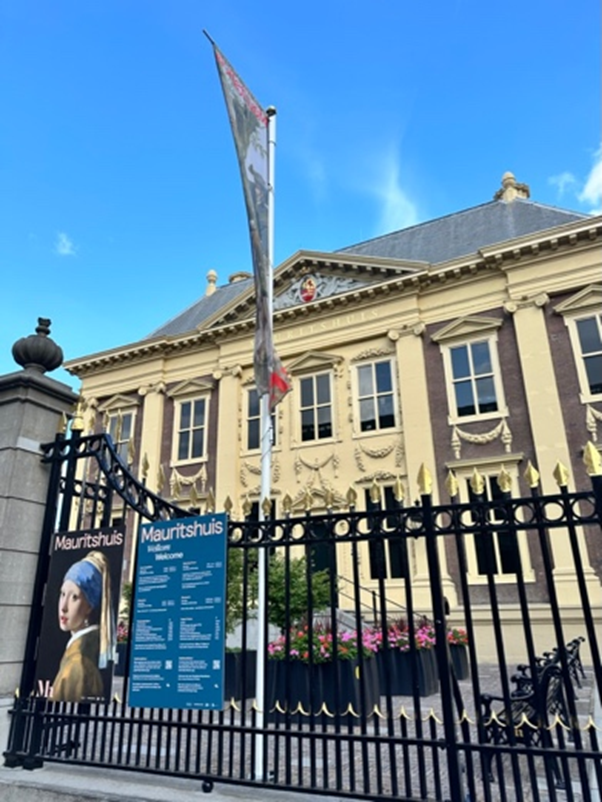Viola, one of our Global Mobility Peer Advisors, has written this helpful guide for King’s students hoping to pursue an internship opportunity abroad. Viola completed an internship at Bloom Consulting, Madrid, Spain during her year abroad in 2022/23.
Places to look for an internship
General job posting websites like Indeed, LinkedIn, Glassdoor, and Milkround are highly valuable resources when searching for internships. They enable you to narrow down your search based on your preferred industry sectors and the specific locations you are targeting.
Sometimes, depending on the country you plan to go to, you may also come across private recruitment agencies that can facilitate connections with companies. It is worth noting that many of these agencies may charge a fee, so it is essential to conduct thorough research to ensure their legitimacy and credibility, to prevent from scams.
Additionally, I recommend visiting companies’ websites and reaching out to specific individuals via email to inquire about potential internship opportunities. Some companies only announce career openings on their own websites or might not post job advertisements on the specific social media platforms you are checking. This approach not only demonstrates your keen interest in the company but also showcases your motivation to join their team for an internship.
Help from King’s Careers Department
It is important to note that King’s College London also provides a wealth of resources to support your research and internship endeavours. On the King’s Careers Connect website, you’ll find a dedicated section called the “Global Placements Hub,” offering a diverse range of resources to assist you in discovering interesting internship opportunities abroad. Furthermore, this platform provides valuable guidance on crafting an effective CV, interview preparation, and assessments to help you stand out during the application process.
For your placement abroad, is it likely that you will be asked by King’s to secure your internship many months in advance before starting the placement. In this regard, it is important to keep in mind that many companies only start posting Job Advertisements closer to the internship starting date. This is why it is important to consider all your options in case you are not able to secure an internship in the end.
Documents required for the Internship
As part of your internship abroad, once you have secured an internship, you will need to complete the Work Placement Approval Form provided by King’s Global Mobility Office. This document will request specific information related to your placement, which you must fill out and then seek approval from your Study Abroad Tutor. Please note that your placement abroad is not confirmed until you receive confirmation that your Study Abroad Tutor has approved it, and you have completed the KHA (details below).
Once your placement has been approved you will be asked to complete and submit the KHA, the ‘King’s Host Agreement’. This is a three-party contract that needs to be signed by the host university (King’s), the host company, and the student. I would recommend that you inform your host employer about the university’s required procedure and that they will be asked to sign this document. This is because some employers have their own internship contracts and may not be able to sign external agreements which could prevent you from doing your internship with that company.
Benefits of doing an internship
Engaging in an internship abroad comes with numerous and unique advantages. Modern Languages students at King’s are required to seek internships conducted in the target language they are studying at their home university. This not only provides an opportunity to hone their language skills but also helps in building strong confidence and communication abilities.
From my personal experience, I can attest that participating in an internship during your year abroad is a transformative experience. It plays a pivotal role in fostering personal growth and self-confidence as you navigate unfamiliar environments, developing resilience and problem-solving skills.
Furthermore, the skills you acquire during an international internship are highly transferable and beneficial for your career aspirations. Working with people from diverse backgrounds for example is advantageous in any profession. Additionally, the opportunity to apply the language you have been diligently studying during your placement in a different workplace setting, adds another layer of competence. Finally, I believe that overall, the skills and experience you gain throughout your international internship significantly enhance your employability and make it easier when you come back to your home country to successfully secure another internship or find an entry level position when you graduate.
Challenges that may arise
When you begin working in the host company, you may encounter some language barriers when assigned tasks and projects, or misunderstandings may arise when communicating with your coworkers or supervisor. However, it is important to understand that this is entirely normal and an integral part of the learning process. I would recommend approaching this experience with an open mind and the awareness that these challenges could occur. As you become more familiar with the work environment and the language, you’ll likely find that these language barriers gradually diminish.
Similarly, adapting to a new culture, customs, and work environment can pose challenges. It may take time to feel comfortable and fully integrated into the workplace. You also might observe that the company you are working for adheres to different work expectations or procedures compared to those in your home country.
If you are far from your support network, including family and friends, there may be moments when you experience loneliness. That is why it’s crucial to maintain regular communication with them, so you can share your experiences and address any issues you may encounter while abroad.
Finally, the internship experience is very different from the university environment. This is primarily because you don’t have the same level of freedom that you enjoy at university. You may find yourself working longer hours, which could limit the time you have to see your friends as frequently as you did before or leave you with less personal time.





